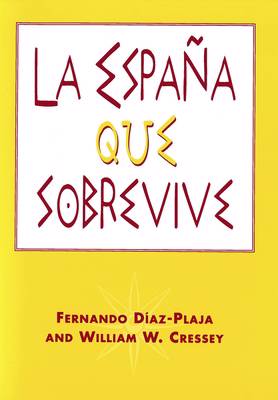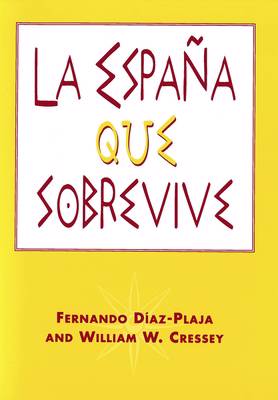
- Retrait gratuit dans votre magasin Club
- 7.000.000 titres dans notre catalogue
- Payer en toute sécurité
- Toujours un magasin près de chez vous
- Retrait gratuit dans votre magasin Club
- 7.000.000 titres dans notre catalogue
- Payer en toute sécurité
- Toujours un magasin près de chez vous
Description
Students of Spanish language and culture can now benefit from a text that provides them with an understanding of contemporary Spanish history and society while refining their knowledge of the language and expanding their vocabulary.
La España que sobrevive (originally published in Madrid in 1987) explores the aftermath of the Franco era in Spain. It presents an objective and nonpartisan, yet humorous and affectionate, view of the important aspects of contemporary Spanish history and society. Topics include the transition to democracy; regionalism and nationalism; key players in current affairs; important institutions such as the monarchy, military, and the church; sexual mores; culture; the media; and politicized approaches to Spanish history.
For this edition, William W. Cressey has edited Fernando Díaz-Plaja's text to make it accessible to English-speaking students at an advanced level of Spanish reading skills. Cressey has also added study aids to the book-vocabulary and footnotes, glosses on proper names, questions for discussion, notes on grammar and rhetoric, and exercises. The study aids are gradually phased out, so that the final chapter is presented as stand-alone reading without any supplementary materials.
Cressey's adaptation of Díaz-Plaja's highly respected work provides an alternative to literary sources for foreign language instruction-a new resource for teaching foreign languages across the curriculum and instruction through content. Bridging the gap between the fairly simple intermediate readers and texts written for adult native speakers, this book can serve as either a supplementary or main text in the advanced study of language or history, or in preparation for study abroad. La España que sobrevive is a practical tool for teaching not only the language but also the many facets of modern Spanish culture.
Spécifications
Parties prenantes
- Auteur(s) :
- Editeur:
Contenu
- Nombre de pages :
- 224
- Langue:
- Anglais
Caractéristiques
- EAN:
- 9780878406319
- Date de parution :
- 01-12-96
- Format:
- Livre broché
- Format numérique:
- Trade paperback (VS)
- Dimensions :
- 179 mm x 255 mm
- Poids :
- 453 g







